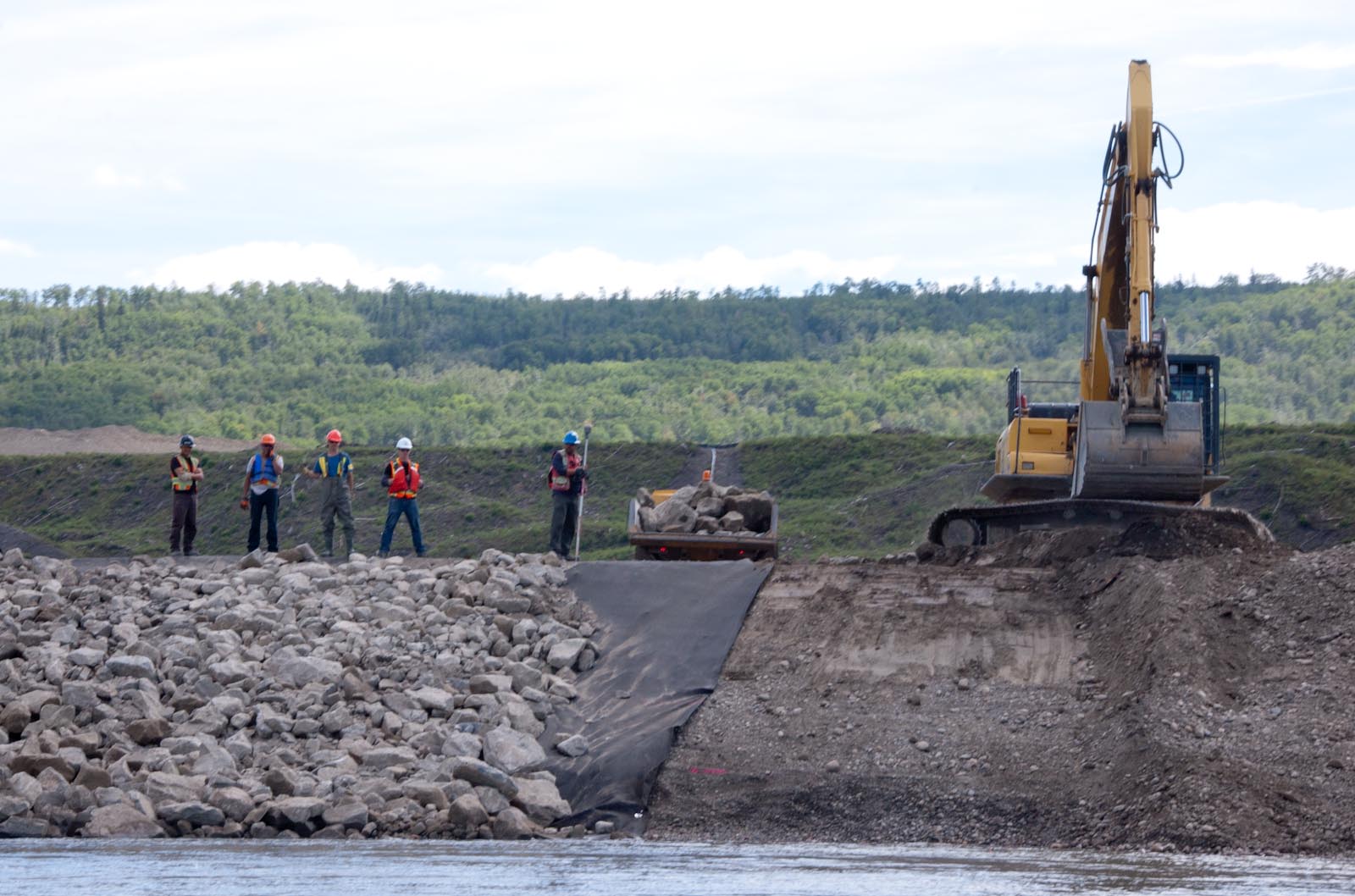As the Dec. 31 deadline for a Site C decision approaches, newly released research shows that renewable energy alternatives, remediation activities and energy efficiency programs would outperform Site C employment numbers hands down.
Karen Bakker, program director at UBC’s Program on Water Governance, calculates that Site C is a bad investment for taxpayers and for the province. Her research — based on data from BC Hydro and industry standards — challenges the notion that continuing with Site C construction is the best way to maximize long-term sustainable jobs in the region.
Continuing with Site C was found to be more expensive than geothermal, wind and solar alternatives and far more expensive than investing in energy efficiency, according to the research.
Focusing on retaining current construction jobs is a red herring and doesn’t reflect longer-term numbers. While Site C hires more people during the early construction phase, over the project’s life a renewable energy portfolio creates far more jobs. By 2054, the alternative energies assessed by the B.C. Utilities Commission will have created three times as many jobs as Site C. Those jobs will reduce carbon emissions and make us leaders in the clean energy economy, without destroying ecosystems, farmland and a First Nation’s treaty-protected way of life.
British Columbians are paying for these jobs, no matter what they produce. Continuing with the project will create about 44,000 person-years of employment during construction. Yet every on-site job at Site C costs taxpayers more than $1 million. Only 74 jobs per year will remain after construction, according to BC Hydro.
If the project is cancelled, two years of remediation and 10 years of monitoring are expected to create nearly 10,000 jobs at similar pay and skill levels. Spending on conservation programs would create 30 jobs for every $1 million spent, making it the most effective way to create employment.
Alternative energy portfolios include new wind projects that can be built according to future energy requirements. The BC Hydro scenario envisions development of more than 1,500 megawatts of wind, creating 17,000 construction jobs, and nearly 600 operations jobs each year in the Peace Region, which has the province’s best wind resources. That is roughly enough power for 450,000 to 750,000 homes and comes with hundreds of ongoing, local jobs.
The U.S. has shown that wind energy is a leading job creator. The nation’s wind technology sector employs a total of 101,738 workers, a 32 per cent increase since 2015. In Texas alone, more than 22,000 jobs are connected to wind energy.
More Americans work in wind than in nuclear, coal, natural gas or hydroelectric power, according to the U.S. Department of Energy’s 2017 Energy and Employment report.
The Site C project is enormously expensive for B.C. taxpayers and a compelling case has been made that the energy from the project isn’t needed. When the dam is completed, the energy will be 100 per cent surplus. Rather than focus on far more affordable energy conservation measures, BC Hydro plans to eliminate them in light of this surplus.
Environmentally, it’s a slam dunk against continuing. Site C has more significant negative environmental effects than any other project ever approved under the Canadian Environmental Assessment Act. Site C is not a climate change solution; it will produce more carbon pollution than the renewable energy porfolios assessed. David Suzuki Foundation research estimates ecosystem services from nature in the Peace watershed are conservatively worth $7.9 billion to $8.6 billion a year. In addition, we’ve long argued that this megadam betrays Canada’s commitment under the UN Declaration on the Rights of Indigenous Peoples.
Large hydro projects across Canada are losing their luster and people are standing up against penalizing ratepayers for bad utility decisions. In Newfoundland, Muskrat Falls has saddled ratepayers with billions of dollars in extra debt and an inquiry is underway. The money for Site C is coming from all of us. By focusing on current construction jobs that come at such a high economic and environmental cost, we’re wasting our opportunity to become a leader in Canada’s fastest growing energy technology sector. There’s still a choice. ![]()
Read more: Labour + Industry, BC Politics















Tyee Commenting Guidelines
Comments that violate guidelines risk being deleted, and violations may result in a temporary or permanent user ban. Maintain the spirit of good conversation to stay in the discussion.
*Please note The Tyee is not a forum for spreading misinformation about COVID-19, denying its existence or minimizing its risk to public health.
Do:
Do not: